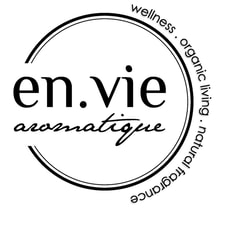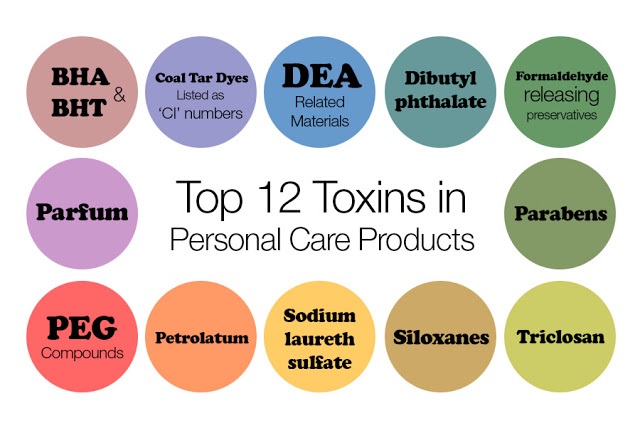Other than illegal trade in wildlife products for precious ivory and rhino horn, the beauty and personal care industry is also largely responsible for causing toxic effects and damages to the environment and its inhabitants. Think about how palm oil causes air pollution and the genocide of orangutans, destruction of wild orchids and rosewood timber and as many as 700 marine species are currently in danger of extinction due to plastic pollution. I'm not even going to get started on how "branded" Shea butter is exploiting human rights in Africa. It is just so tragic!
You might protest right now - "but the products I'm using are Fairtrade and anti-animal cruelty!" Well, those only serve 2 purposes - marketing poverty to benefit the rich and protection of cute little animals, not the environment in general.
Sadly, it does not all sound very rosy right now. The production of "hope in a bottle or jar" has caused the earth dearly and here are 3 recent concerns that surround the environmental damages of cosmetics and personal care products.
The real cost of "natural"
Everyone is cashing in on "natural". They seem to think by adding a few drops of essential oil or 5% of botanical ingredients in their products; it is now healthier for use. Have you considered that as more companies are sourcing natural products, the demand for such ingredients have increased and invariably driven cost up? Demand is a good thing; but big companies will want these products cheap and fast, which meant exploitation of farming, production ethics, wages and the lands that flora and fauna survive on.
Mining is another problem unknown to many. Minerals are becoming popular ingredients in natural cosmetics. Most consumers are only interested in the effectiveness of the products. But minerals essentially are... yes, extracted by mining companies. When done irresponsibly, the mining of minerals and oil for petroleum based products can disrupt eco-systems and deplete non-renewable natural resources.
Thus, the benefits of buying 100% natural products from small businesses become obvious - there is no damage to your body, health and our environment.
The truth about packaging
The boxes and containers of what we use also have damaging effects to the environment. The more businesses pack, the more there is to toss and how do you think waste gets eliminated? Containers and packaging that are not recyclable or biodegradable consume more energy and landfills to break them down. One of the most common packaging wastes is cheap plastic. The hazard that this plastic causes to the environment is very serious and improper handling of plastic waste emits toxic gases into the air.
The chemical components of many beauty and personal care products we use are accumulated in our eco-systems - typically being washed down the sinks and recycled, evaporated or transferred into rivers, reservoirs and other water sources. All lives on earth are dependent on the water cycle. Human beings, livestock and plants that are exposed to these chemicals can suffer genetic, reproductive and developmental changes, as well as die from cancer.
1. P-phenylenediamine is a dangerous, coal-tar derive chemical found in most lipsticks and hair dyes. This chemical has permanent toxic effects on the aquatic eco-system. It shrinks the animal plankton population, alter fish behaviour and kill many aquatic species.
2. You would familiar with BHA and BHT, commonly used as synthetic antioxidants in many branded lipsticks and moisturisers. BHA and BHT cause genetic mutations in amphibians.
3. Dioxane is a carcinogenic and endocrine disruptive chemical that contaminates many cosmetic ingredients including SLS and glycol's during the manufacturing process. Most companies do not remove dioxane because it is both costly and time consuming. Dioxane is found in cream base cosmetics, shampoo, moisturisers, soap and bubble bath. When dioxane is washed down the drain and "introduced" into the eco-system, it alters fish growth, kills insects and amphibians and increases death rate.
4. Triclocan, that anti-bacterial ingredient everyone's looking for in cleanser, hand sanitiser, deodorant and laundry detergent is simply poison. A highly triclocan toxic environment is fatal to all organisms.
5. You would not be unfamiliar with DEA, found in almost every cosmetic, skin care and personal care product. DEA is a ph adjuster and balances the acidic properties of the other chemicals in the product. DEA accumulates in the environment and reacts with nitrates to form carcinogens that cause cancer to both humans and animals.
Naturally, the list of "poisons" does not end here. But the truth cannot be simpler. The beauty and personal care industry has an ugly problem that nobody wants to admit. The health and environmental effects of cosmetic chemicals are by and far extensive. The last thing you want to worry about is whether the products that make you and your children clean, comfortable and lovely are also cancer-causing chemicals.



 RSS Feed
RSS Feed
